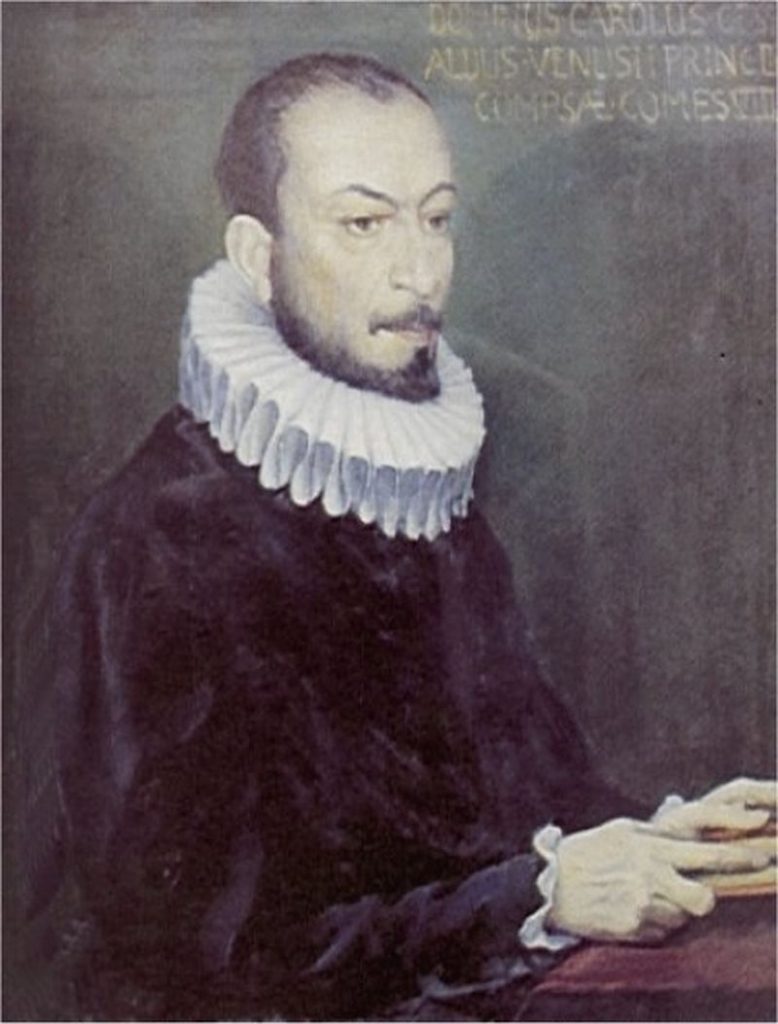Les Arts Florissants shocks and awes with Gesualdo’s sacred madrigals

Darkness, fog, and drizzle prevailed over New York Sunday afternoon, veiling the Cloisters in mist. But those who made the trek to the hilltop museum in upper Manhattan were rewarded with a superb vocal performance that transformed darkness into light.
Carlo Gesualdo, Prince of Venosa, was a Renaissance nobleman who inherited great political power, but whose sole, unprincely ambition was to compose and perform music. After he became notorious for the murder of his first wife and her lover, he retreated to his estate, sought only the company of musicians, and became one of the most original composers of his or any era.
Four centuries later, Gesualdo’s music hasn’t lost its power to shock and amaze, as evidenced by the vibrant yet profoundly spiritual performance of his sacred madrigals by Les Arts Florissants Sunday at the Cloisters.
Six singers, unaccompanied, were all it took to fill the museum’s Fuentidueña Chapel with sounds ranging from gleaming major triad chords to a tumultuous hubbub of dissonance.
And if anything could summon up dissonant music, it would be the events leading up to the crucifixion of Jesus: the Last Supper, the lonely watch in Gethsemane, the betrayal by Judas, all memorialized in the nine Responsories for Maundy Thursday from the 1611 collection of Holy Week responsories that many consider Gesualdo’s crowning achievement as a composer.
These often-agonized meditations were bookended on Sunday’s program, as if to ease the listener into and out of Gesualdo‘s obsessive world, by the comparatively euphonious madrigals Tribulationem et dolorem and Miserere mei Deus, the latter a setting of Psalm 50, envisioning God’s mercy on the sinner.
Leading it all from his place in the semicircle of singers was Paul Agnew, who gave the most minimal of cues during the performance. Yet his musical direction was evident in the great variety of timbres and effects achieved by his ensemble, and in its secure navigation of this composer’s tortured harmonies.
Other composers of the time used chromatic sideslips and bizarre modulations now and then as special effects, but for Gesualdo they were the essence of the spiritual torment he was trying to express. Just to sing in tune, without accompaniment, through page after page of shifting and overlapping harmonies would have been an achievement in itself, but Sunday’s group—sopranos Miriam Allan and Hannah Morrison, contralto Mélodie Ruvio, tenors Agnew and Sean Clayton, and bass Edward Grint—went much further than that.
Superbly attentive to one another, well matched in clear tone without vibrato, the singers wove a contrapuntal fabric that blended into rich, organ-like sonority at some moments and splintered into six-way conversation at others.
They did not miss a beat of the emotional implications of the Latin texts and Gesualdo’s setting. When Jesus warned his disciples of “the crowd that will surround me,” angry dissonances swarmed in the music. The prophet Jeremiah’s vision of “the innocent lamb” whose enemies “eradicated [him] from the land of the living” began in a beatific homophonic setting but ended in a battery of stomping marcato lines.
At times director Agnew pushed the musical boundaries to speech-like inflections, as when a tumult of semi-shouted phrases illustrated Jesus’s words to the disciples, “You will take flight.” And if it is possible to attack a note scornfully, that is what the sopranos did on the words “Judas, the most evil merchant.”
The divine purpose of all this dark drama was not neglected in the music either. On lines like “With his stripes we are healed,” the bare stone walls of the Spanish chapel rang with pure-toned harmonies that reached toward heaven.
In sum, the setting, the composer’s sensibility, the vocal artistry, and even the weather outside combined to create one of the most memorable concerts in this listener’s experience.
The Metropolitan Museum of Art presents lutenist Paul O’Dette in a program titled “Sounding the Dutch Baroque,” 6 p.m. and 7:30 p.m. Nov. 1. metmuseum.org; 212-535-7710.






